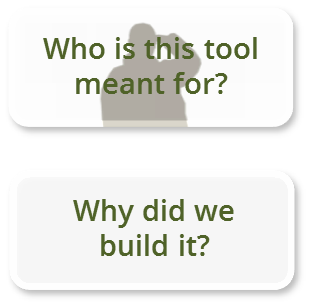

In a nutshell
This tool offers structured access to information on arguments for biodiversity protection and the factors influencing their effective use. But it is not meant to offer you the compelling argument or the conlusive evidence.
Arguments have effect when they are accredited, and this tool offers information under what circumstances people might accredit which arguments or argumentation. The aim of the tool is to unlock this information in such a way that it is understandable and usable for a non-scientific public.
The basics
When is an argument effective?
A good argument is one that convinces. In this case: convinces policy makers to take action for biodiversity. The ‘effectiveness’ of an argument within this context is therefore determined by its ability to provoke action, as well as by its ability to keep doing so over time.
Effectiveness depends on context
What ‘good’ arguments are is situation dependent. The effectiveness of arguments in influencing decision makers depends for instance on the level of knowledge and the views of the decision makers, on the way the arguments are used (e.g. in a positive or negative way), on how they influence other parties in the process, on what the synergies and trade-offs with other interests are and on what the cultural, ecological and economic situation is.